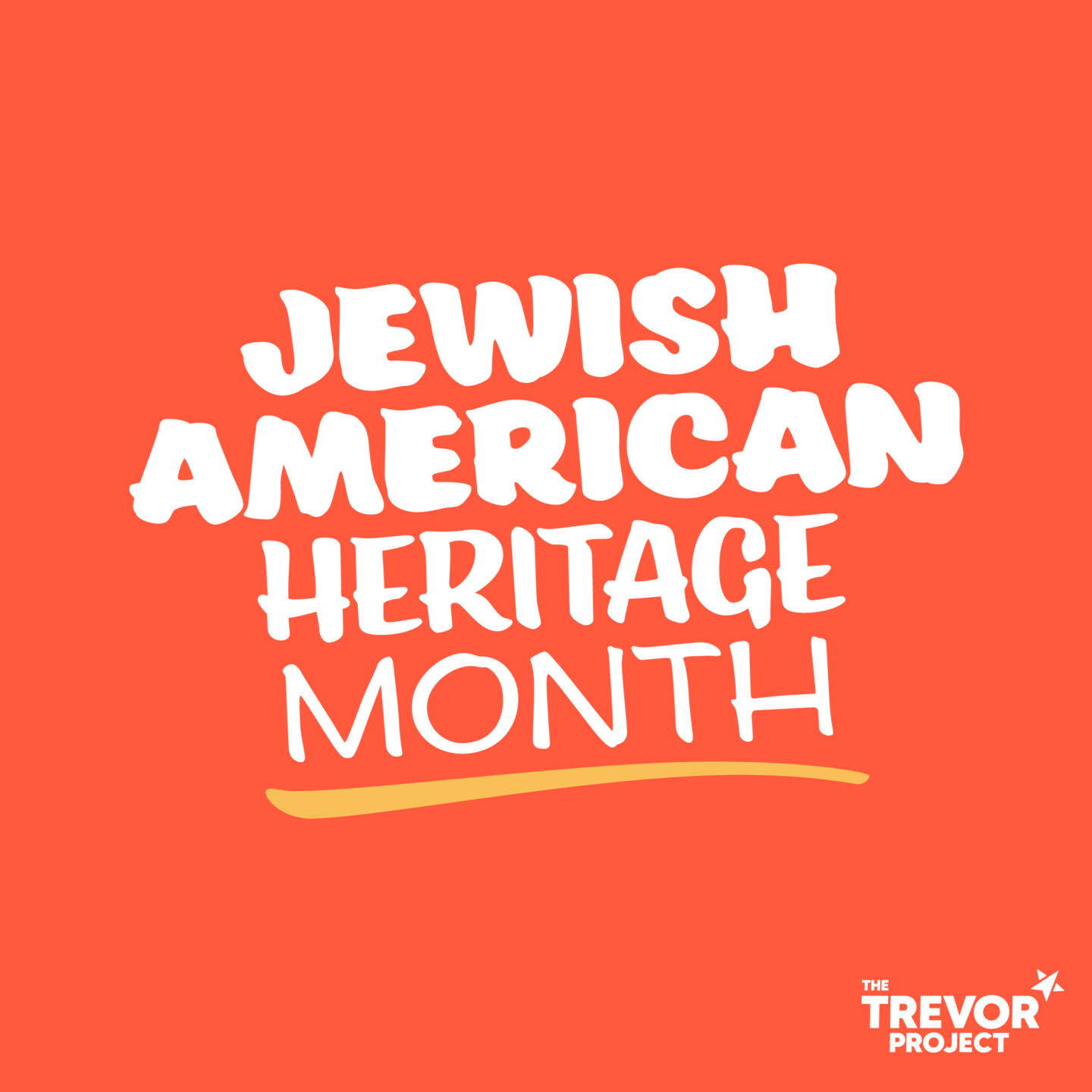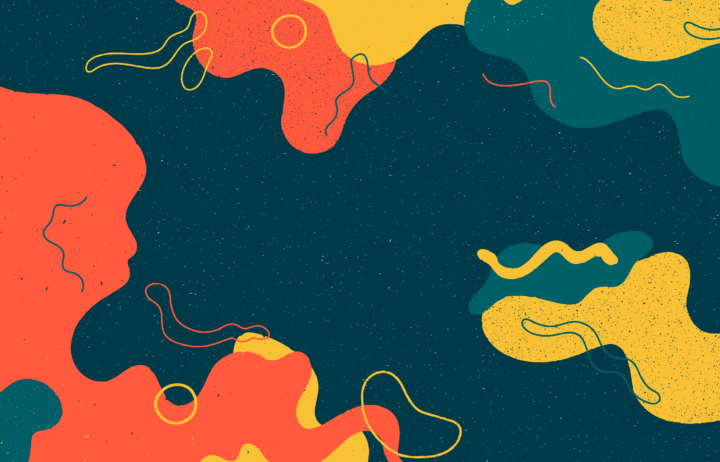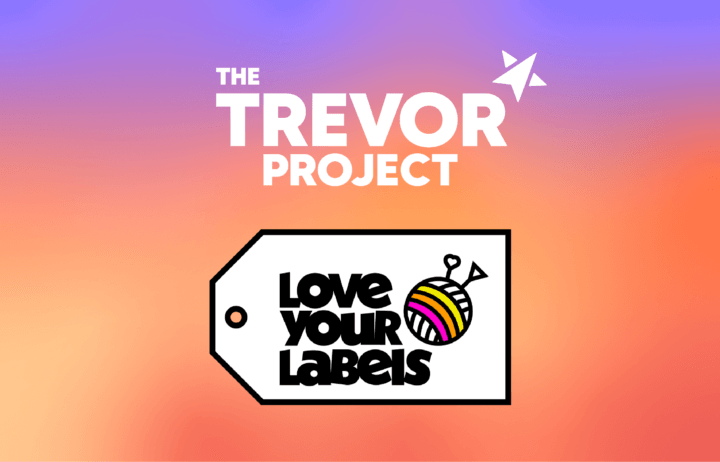Youth's Lives Every Day
As May rolls around, we recognize Jewish American Heritage Month, a time to celebrate the rich cultural history and contributions of Jewish Americans. As someone from a family with Jewish heritage, this month is a moment to connect to a tradition that is both religious and cultural. I have often been called “one ‘i’ away from having a Jewish last name” (my surname is Bernsten, but often misspelled as Bernstein)and, though I was not raised in a Jewish family, my paternal grandmother came from an Ashkenazi Jewish family in Lithuania and my identity – whether or not I could consider myself Jewish – was an ongoing question.
We didn’t talk about my Jewish heritage as a family growing up, but my best friend in middle school was Jewish – she was my gateway to getting to know the Jewish heritage. Some of my favorite memories revolved around sitting in her dining room with her extended family in Beloit, Wisconsin attending Passover seder dinners, drinking non-alcoholic grape juice, and reading the story of the Israelites’ Exodus from Egypt, stories that overlapped with my Christian upbringing. As I grew up and tried to find safe people to come out to, it was my Jewish friends who were overwhelmingly the most affirming of my LGBTQ+ identity in a largely Christian community.
In college, I became interested in finding out more about the Jewish part of my heritage. I often felt some imposter syndrome over not being Jewish enough – I wasn’t raised Jewish, it was my dad’s mom who was Jewish, not my mom’s, therefore negating the technicalities required to be considered fully Jewish. My first boyfriend in college, however, was Jewish, and I was similarly welcomed into his home to celebrate the Passover and Hanukkah traditions. Learning about the Jewish emphasis on optimism, memory, family, and responsibility, struck a chord in me. I felt like I was neglecting my responsibility to honor a part of my family, to learn about their memories and understand my own heritage.
In the summer of 2018, I decided to travel to my Jewish family’s homeland in Vilnius, Lithuania. I had never been to the country, but I knew it was where my Jewish ancestors had lived. Asking my grandmother about her family that had lived there, she simply said that after the Holocaust, “she never heard from them again” and told me she didn’t like talking about it. That was that – it was a painful subject to talk about. I thought of the importance of memory, and knew that going to the place where my ancestors lived was the best way to connect to the part of my identity I was just beginning to understand. Identity is never clear cut – there are nuances and shades of gray in our heritage, in the intersections of our identity that drive who we are. Buying pastries in a small bakery in Old Town, I explained that my family had been from Lithuania, and she piled my bag with six pastries and told me, “welcome home” in broken English. Visiting Vilnius and spending time at the Holocaust Museum (The Green House) and learning about the atrocities in the city where my family has hailed from helped me understand the sobering history that was inextricably linked to my identity as a descendent of immigrants in America. The longing I felt to understand part of where I came from was driven by a desire to connect with all parts of where I came from, in order to understand my place in America. Months like this remind me of taking time to connect to where we come from to understand who we are.
At the Trevor Project, we understand the importance of celebrating heritage and exploring our identity. This is especially important for LGBTQ+ Jewish youth who face unique challenges and experiences of discrimination. It’s important to recognize that Jewish American Heritage Month comes at a time when anti-Semitism continues to be a pervasive issue in our society. In 2022, the Anti-Defamation League tabulated 3,697 antisemitic incidents throughout the United States. According to the ADL website, “this is a 36% increase from the 2,717 incidents tabulated in 2021 and the highest number on record since ADL began tracking antisemitic incidents in 1979.” marking the highest level of such incidents since the organization began tracking them in 1979. This is a sobering reminder that there is still much work to be done to combat prejudice and discrimination against Jewish Americans and other marginalized groups.
For LGBTQ+ Jewish young people, these issues can be particularly challenging. The Trevor Project is committed to supporting all LGBTQ+ young people and ensuring that they feel safe, accepted, and supported. During Jewish American Heritage Month, we encourage all members of our community to take the time to learn about and celebrate the rich history and contributions of Jewish Americans. The Trevor Project is proud to stand with the Jewish community and all those who are working to create a more inclusive and accepting world.
Ryan Bernsten is Senior Managing Editor at The Trevor Project, the leading suicide prevention and mental health organization for lesbian, gay, bisexual, transgender, queer & questioning (LGBTQ+) young people. If you or someone you know is feeling hopeless or suicidal, our trained crisis counselors are available 24/7 at 1-866-488-7386 via chat www.TheTrevorProject.org/Get-Help, or by texting START to 678-678.


